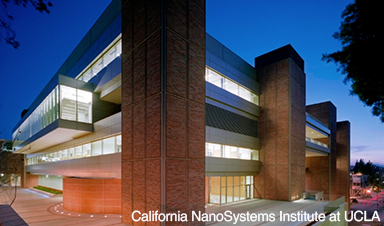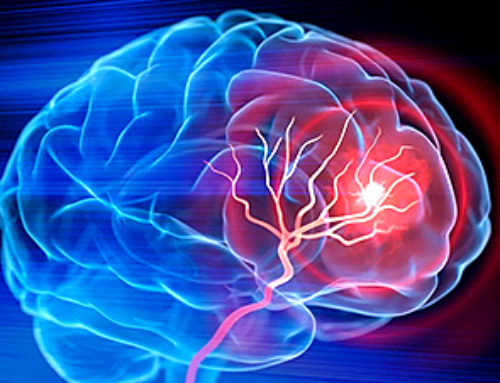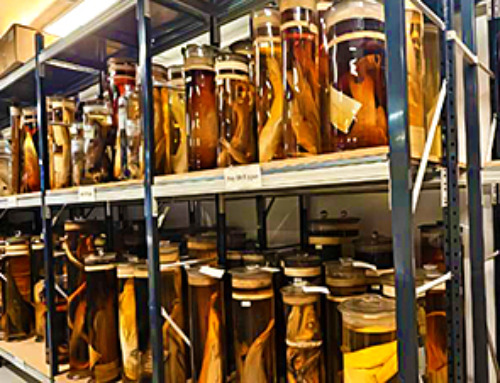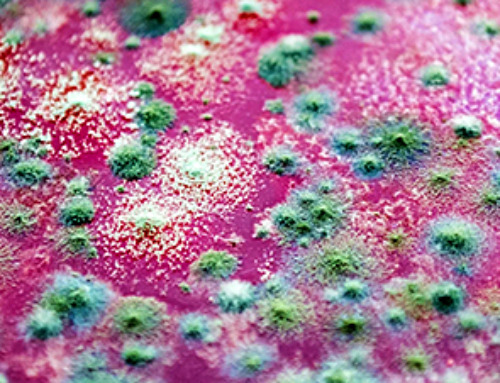For about one in 13 children in the U.S., normally harmless foodstuffs such as milk, eggs and peanuts can send the body’s natural defenses into overdrive.
Symptoms of food allergies can vary widely, but at worst, a systemwide allergic response can lead to anaphylaxis, a life-threatening condition characterized by a sudden drop in blood pressure and difficulty breathing.
Although there are now some preventive measures for food-induced anaphylaxis, there are not yet any long-lasting solutions—treatments capable of locking the immune system into a state of tolerance, so that it doesn’t respond to allergens.
Now, a UCLA research team has developed a possible way to impart long-term relief from allergies by inducing an active state of immune tolerance.
The technology uses a nanoparticle—a particle so small that it’s measured on the scale of billionths of a meter—to deliver proteins to specific cells in the liver. Those proteins may trigger an allergic response in other organs in the body, but in the liver, they cause the targeted cells to activate a tolerant immune response that switches the allergic response off.
A report on the research, published in ACS Nano, indicates that the platform is effective in preventing allergic reactions to an egg protein when ingested or inhaled. The UCLA researchers also showed that delivering a single piece of a protein that triggers allergies is sufficient to ameliorate the allergic reaction.
“Huge numbers of people suffer from food allergies, amounting to billions of dollars in annual health care costs,” said co-corresponding author Dr. André Nel, director of the University of California’s Center for Environmental Implications of Nanotechnology, or CEIN, and director of research at the California NanoSystems Institute at UCLA. “Normally, asthma and anaphylaxis are treated with an EpiPen syringe as well as anti-inflammatory and immune-suppressive drugs that only provide transient relief. For the problem to go away long-term, we’re looking at the liver to reprogram the immune system to an actively sustained state of nonresponsiveness.”
The liver is an immune-privileged organ, meaning that it is programmed not to respond to foreign proteins called antigens, which can cause allergic or anaphylactic responses elsewhere in the body. The platform developed by Nel and his colleagues spurs the liver to produce regulatory T cells, cells in the immune system that can go everywhere in the body, to calm allergic responses to food allergens.
Image Credit: University of California, Los Angeles
Post by Amanda Scott, NA CEO. Follow her on twitter @tantriclens
Thanks to Heinz V. Hoenen. Follow him on twitter: @HeinzVHoenen
News
Scientists Develop IV Therapy That Repairs the Brain After Stroke
New nanomaterial passes the blood-brain barrier to reduce damaging inflammation after the most common form of stroke. When someone experiences a stroke, doctors must quickly restore blood flow to the brain to prevent death. [...]
Analyzing Darwin’s specimens without opening 200-year-old jars
Scientists have successfully analyzed Charles Darwin's original specimens from his HMS Beagle voyage (1831 to 1836) to the Galapagos Islands. Remarkably, the specimens have been analyzed without opening their 200-year-old preservation jars. Examining 46 [...]
Scientists discover natural ‘brake’ that could stop harmful inflammation
Researchers at University College London (UCL) have uncovered a key mechanism that helps the body switch off inflammation—a breakthrough that could lead to new treatments for chronic diseases affecting millions worldwide. Inflammation is the [...]
A Forgotten Molecule Could Revive Failing Antifungal Drugs and Save Millions of Lives
Scientists have uncovered a way to make existing antifungal drugs work again against deadly, drug-resistant fungi. Fungal infections claim millions of lives worldwide each year, and current medical treatments are failing to keep pace. [...]
Scientists Trap Thyme’s Healing Power in Tiny Capsules
A new micro-encapsulation breakthrough could turn thyme’s powerful health benefits into safer, smarter nanodoses. Thyme extract is often praised for its wide range of health benefits, giving it a reputation as a natural medicinal [...]
Scientists Develop Spray-On Powder That Instantly Seals Life-Threatening Wounds
KAIST scientists have created a fast-acting, stable powder hemostat that stops bleeding in one second and could significantly improve survival in combat and emergency medicine. Severe blood loss remains the primary cause of death from [...]
Oceans Are Struggling To Absorb Carbon As Microplastics Flood Their Waters
New research points to an unexpected way plastic pollution may be influencing Earth’s climate system. A recent study suggests that microscopic plastic pollution is reducing the ocean’s capacity to take in carbon dioxide, a [...]
Molecular Manufacturing: The Future of Nanomedicine – New book from Frank Boehm
This book explores the revolutionary potential of atomically precise manufacturing technologies to transform global healthcare, as well as practically every other sector across society. This forward-thinking volume examines how envisaged Factory@Home systems might enable the cost-effective [...]
New Book! NanoMedical Brain/Cloud Interface – Explorations and Implications
New book from Frank Boehm, NanoappsMedical Inc Founder: This book explores the future hypothetical possibility that the cerebral cortex of the human brain might be seamlessly, safely, and securely connected with the Cloud via [...]
Global Health Care Equivalency in the Age of Nanotechnology, Nanomedicine and Artificial Intelligence
A new book by Frank Boehm, NanoappsMedical Inc. Founder. This groundbreaking volume explores the vision of a Global Health Care Equivalency (GHCE) system powered by artificial intelligence and quantum computing technologies, operating on secure [...]
Miller School Researchers Pioneer Nanovanilloid-Based Brain Cooling for Traumatic Injury
A multidisciplinary team at the University of Miami Miller School of Medicine has developed a breakthrough nanodrug platform that may prove beneficial for rapid, targeted therapeutic hypothermia after traumatic brain injury (TBI). Their work, published in ACS [...]
COVID-19 still claims more than 100,000 US lives each year
Centers for Disease Control and Prevention researchers report national estimates of 43.6 million COVID-19-associated illnesses and 101,300 deaths in the US during October 2022 to September 2023, plus 33.0 million illnesses and 100,800 deaths [...]
Nanomedicine in 2026: Experts Predict the Year Ahead
Progress in nanomedicine is almost as fast as the science is small. Over the last year, we've seen an abundance of headlines covering medical R&D at the nanoscale: polymer-coated nanoparticles targeting ovarian cancer, Albumin recruiting nanoparticles for [...]
Lipid nanoparticles could unlock access for millions of autoimmune patients
Capstan Therapeutics scientists demonstrate that lipid nanoparticles can engineer CAR T cells within the body without laboratory cell manufacturing and ex vivo expansion. The method using targeted lipid nanoparticles (tLNPs) is designed to deliver [...]
The Brain’s Strange Way of Computing Could Explain Consciousness
Consciousness may emerge not from code, but from the way living brains physically compute. Discussions about consciousness often stall between two deeply rooted viewpoints. One is computational functionalism, which holds that cognition can be [...]
First breathing ‘lung-on-chip’ developed using genetically identical cells
Researchers at the Francis Crick Institute and AlveoliX have developed the first human lung-on-chip model using stem cells taken from only one person. These chips simulate breathing motions and lung disease in an individual, [...]





















